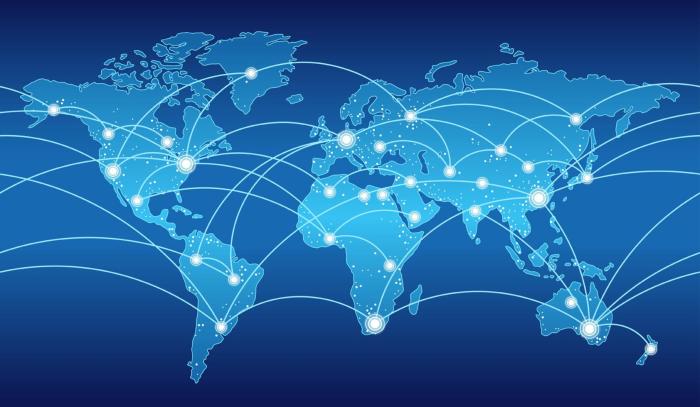Control in a global information system requires _____. – Control in a global information system requires collaborative governance to balance access and security. This involves a delicate interplay between organizations, governments, and individuals, each with their own interests and perspectives.
Organizations must implement robust security measures to protect sensitive data while ensuring equitable access for authorized users. Governments have a responsibility to establish clear regulatory frameworks and enforce compliance to prevent misuse of information. Individuals must exercise responsible online behavior and respect intellectual property rights.
Global Information System: Control Mechanisms: Control In A Global Information System Requires _____.

Controlling information flow in a global information system is crucial to ensure data integrity, privacy, and security. Various mechanisms are employed by organizations, governments, and individuals to exert control over information, including:
- Organizational Policies and Procedures:Companies establish internal policies and procedures to govern information access, usage, and storage.
- Government Regulations:Laws and regulations mandate compliance with data protection standards, such as GDPR and HIPAA.
- Encryption:Data is encrypted to protect it from unauthorized access during transmission and storage.
- Access Control Lists (ACLs):ACLs define who can access specific information resources.
- Firewalls and Intrusion Detection Systems (IDSs):These technologies prevent unauthorized access to networks and systems.
These control mechanisms face challenges, including:
- Balancing Control and Access:Striking a balance between protecting information and ensuring equitable access is crucial.
- Evolving Technologies:Technological advancements constantly introduce new challenges for information control.
- Cross-Cultural Differences:Cultural norms and values influence perceptions of information control.
Balancing Control and Access

Effective control mechanisms must consider equitable access to information. Examples include:
- Role-Based Access Control (RBAC):Users are granted access based on their roles and responsibilities.
- Data Masking:Sensitive data is masked to protect privacy while allowing access for authorized users.
- Data Anonymization:Data is stripped of personally identifiable information to facilitate sharing while preserving privacy.
Ethical considerations in information control include:
- Privacy Rights:Individuals have the right to control access to their personal information.
- Freedom of Information:The public has a right to access certain government information.
- Transparency and Accountability:Control mechanisms should be transparent and accountable to ensure fair and responsible information management.
Technological Advancements and Control
Technological advancements have significantly influenced information control:
- Encryption:Advanced encryption algorithms, such as AES-256, provide robust protection for sensitive data.
- Blockchain:Blockchain technology offers decentralized and immutable data storage, enhancing information security.
- Artificial Intelligence (AI):AI-powered security tools automate threat detection and response.
These technologies present implications for future information control, including:
- Increased Data Protection:Advanced technologies will further enhance data protection capabilities.
- Decentralization:Blockchain and other decentralized technologies will empower individuals with greater control over their information.
- Automated Control:AI will play a significant role in automating information control processes.
Cross-Cultural Perspectives on Control

Cultural perspectives influence information control practices:
- Individualistic Cultures:Emphasize personal privacy and autonomy in information control.
- Collectivist Cultures:Prioritize group interests over individual privacy, resulting in stricter information control.
These differences pose challenges for global collaboration in information control:
- Data Sharing:Cultural differences can hinder data sharing across borders.
- Privacy Laws:Variations in privacy laws create complexities in managing data.
- Ethical Considerations:Cultural norms shape ethical perspectives on information control.
Future of Control in Global Information Systems

The future of control in global information systems is shaped by:
- Emerging Technologies:Quantum computing and the Internet of Things will introduce new challenges and opportunities for information control.
- Societal Shifts:Changing attitudes towards privacy and data ownership will impact control mechanisms.
- Ethical Considerations:Ethical concerns will remain central in shaping future information control practices.
Innovative approaches to balancing control and access include:
- Privacy-Enhancing Technologies:Technologies that protect data privacy while enabling data sharing.
- User-Centric Control:Empowering individuals with greater control over their information.
- Collaborative Governance:Fostering collaboration among stakeholders to develop fair and equitable control mechanisms.
User Queries
What are the key challenges in controlling information flow in a global information system?
The key challenges include balancing control and access, addressing cross-cultural differences in information control practices, keeping pace with technological advancements, and ensuring compliance with regulatory frameworks.
How can organizations implement effective control measures while ensuring equitable access to information?
Organizations can implement role-based access controls, data encryption, and regular security audits to protect sensitive data. They can also provide training to employees on responsible information handling practices and establish clear policies for information sharing.